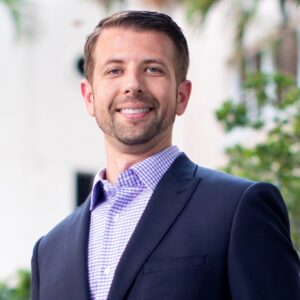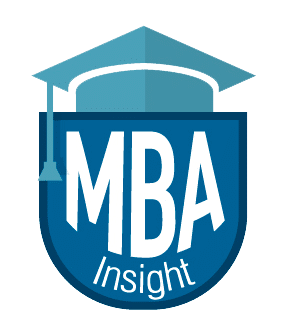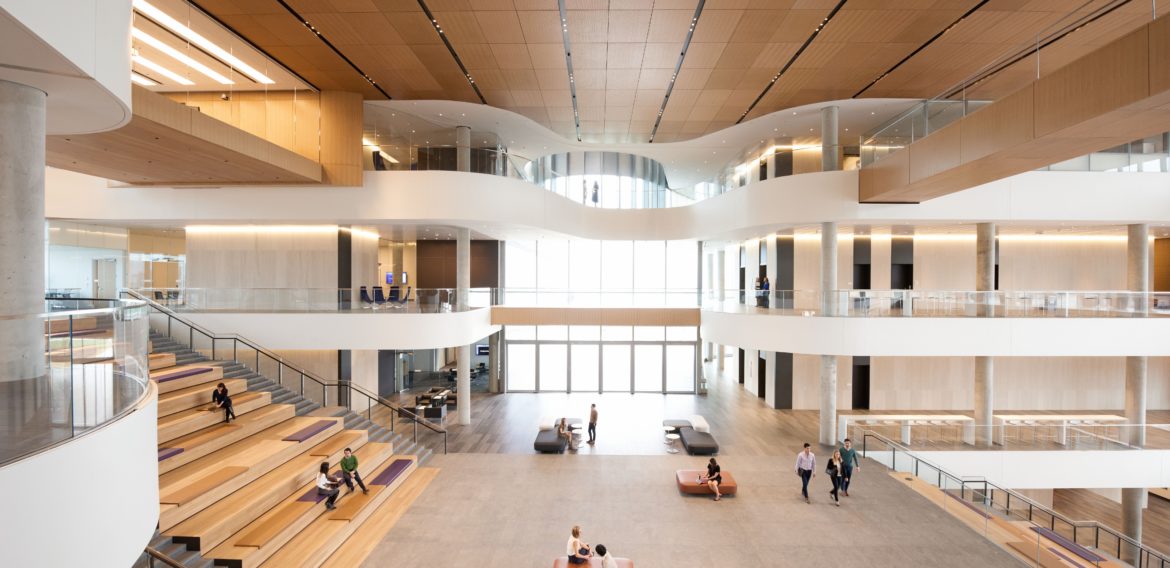Q&A WITH THE KELLOGG DIRECTOR OF MBA ADMISSIONS

Steve Thompson, Senior Director of Full-Time MBA Admissions
What is the one area of your program that you wish applicants knew about?
It’s hard to choose, here are a few:
1. The strength and legacy of our healthcare programming. Healthcare at Kellogg started in 1945, making Kellogg the first business school to focus on the business of health. As a result, we have alumni that are business leaders in all facets of the healthcare ecosystem including leading Fortune 500 healthcare companies, biopharmaceuticals and healthcare startups. We have a dedicated healthcare pathway which prepares students for the unique challenges and opportunities in the industry through a mix of foundational and experiential courses. Students can pursue specific tracks tethered to their post-grad interests such as healthcare entrepreneurship, life sciences and products or payer/provider issues
2. Our increased focus on private equity. Private equity (PE) is the top destination for our students seeking jobs in financial services, with, thus far, 10% of our Class of 2023 graduates accepting a job offer in this field. To meet the increased demand from students, Kellogg has been expanding its PE resources, including adding the Advanced Private Equity Experience (APEX). This highly competitive opportunity provides students with an innovative academic and student experience that includes 1:1 industry mentorship, an accelerated PE curriculum with an advanced deep-dive course, as well as mentorship from Kellogg faculty.
3.Our broad portfolio of programs. A unique benefit to Kellogg’s full-time MBA program is the flexibility combined with a portfolio of five distinct MBA programs that have been intentionally designed to fit students’ personal and professional interests. And while these programs provide distinct core curriculums, the elective period gives all our full-time MBA students with the opportunity to take classes together and learn from each other’s unique insights.
4. Our newest program, the MBAi, is designed to prepare professionals to drive strategic business innovation while understanding the complex nuances of the technology that enables it. The unique curriculum includes machine learning, robotics, computational thinking for business, fintech, introduction to the frontiers of science and technology, and how data science and artificial intelligence are driving innovation. The program is five-quarters and includes a full-time summer internship and an industry immersion in the San-Francisco Bay area. Students will receive a joint MBA degree from both Kellogg and the McCormick School of Engineering.
What is the single most exciting development, change or event happening at your MBA program this coming year?
There are several exciting things happening at Kellogg this year! Recently, we’ve announced a number of transformative gifts that contribute to both our student experience and our reputation as a world-renowned research institution.
- Just recently the Zell Family Foundation made a historic $25 million gift to Kellogg, endowing the highly successful Zell Fellows Program. The program, initiated in 2013, offers an exclusive entrepreneurial experience for Kellogg students who aspire to start or acquire businesses. Participants receive mentorship from Kellogg faculty and external experts, engage in global treks, and obtain stipends for their ventures. Upon graduation, they join the Zell Global Entrepreneurship Network. Over the last decade, 200 Kellogg students have participated, launching 127 ventures, raising over $705 million in capital, and creating an estimated 3,600 jobs.
- In September, Kellogg announced a $25 million gift from the Ryan Family Foundation to fund the Ryan Institute on Complexity, which will place Kellogg and Northwestern at the forefront of solving increasingly complex societal, business and market challenges by harnessing the power of big data and artificial intelligence. The problems businesses – and business leaders – face today are multifaceted and rapidly evolving. By harnessing the principles of complexity — looking at an issue from many angles with many points of expertise — we will better prepare future leaders to solve increasingly complex societal, business and market challenges. Across Kellogg, we teach our students how to best respond to changing business dynamics. In recent years, many of the biggest changes have been centered around emerging technologies such as generative AI.
- Kellogg is committed to evolving our curriculum and class offerings to give students the necessary opportunities and skills to become the leaders of tomorrow. In 2023, and looking ahead into 2024, we are launching 10 new courses. A few of these courses include:
- Using Analytics to Create and Capture Value in Healthcare, taught by Professor Amanda Starc, is designed for students who want to better understand empirical arguments in the healthcare industry. Students will become familiar with basic tools of modern data science through hands-on experience and will learn how to use analytics and data to address decisions faced by healthcare firms.
- Think Like a Behavioral Scientist: Improving Thinking, Motivation, and Action at Work, taught by Professor Lauren Eskreis-Winkler, is for future leaders who are interested in improving their own thinking, motivation, and behavior in the workplace, or the thinking, motivation, and behavior of others.
Walk us through the life of an application in your office from an operational standpoint. What happens between the time an applicant clicks “submit” and the time the committee offers a final decision.
By the time an applicant clicks submit, we understand that they’ve put extensive time, effort and thought into the application. With that in mind, we thoroughly review each application to best understand the experiences and motivations of each candidate. For this reason, we introduced the video essay several years ago to provide a valuable opportunity for candidates to tell us more about their story and experiences, beyond their application.
In addition to the video essays, we strive to interview as many candidates as possible and collaborate with our wonderful network of alumni to help achieve this objective.
All of these inputs come together to create a holistic review process that enables us to understand not just what a candidate hopes to get out of their MBA, but also what they will bring to the experience of other students and the Kellogg community as a whole.
How does your team approach the essay portion of the application specifically? What are you looking for as you read the essays? Are there common mistakes that applicants should try to avoid? One key thing they should keep in mind as they sit down to write them?
We are looking to get to know candidates beyond their test scores and resumes. The essays are a terrific opportunity to go beyond what you do for a living and show us “the how” and “the why.” We want the essays to be authentic and encourage applicants to avoid a generic response.
Our first written essay question asks candidates to reflect on how they relate to Kellogg’s purpose, how they think critically, and their leadership journey thus far.
Kellogg leaders are primed to tackle today’s pressing concerns everywhere, from the boardroom to their neighborhoods. Tell us about a time in your life where you’ve needed a combination of skills to solve a problem or overcome a challenge. Which skills did you use?
Our second written essay is designed to learn about each candidate’s unique experiences: At Kellogg, our values are based on research that concludes organizations comprised of leaders with varied backgrounds and perspectives outperform homogeneous ones. How do you believe your personal and professional experiences to date will help to enrich the Kellogg community?
We prompt our applicants with these questions as a means to uncover the details of what motivates and inspires them. What drives them when they get up every morning? How will this make them meaningful members of our community at Kellogg? How will it shape the kind of leader they will become one day? We’re confident that these essays will help our team identify the candidates who will thrive at Kellogg.
My advice for candidates is to avoid telling us what they think we want to hear. Make sure your essay represents you and only you – is what you are conveying broad and lacking in substance, or are you giving us concrete insights into how you think and work? If it’s the latter, your essay is probably on the right track.
Do you have any application tips (for essay & recommendations) for MBA Applicants?
Think about your application holistically. Pursuing an MBA is a catalyst for personal and professional growth. What do you want to accomplish by pursuing an MBA? How have you grown in the past? How do you intend to grow at Kellogg? We also want to see how our applicants handle leadership and teamwork, which are integral parts of the Kellogg experience. How have you been a leader? What challenges did you face and how did you handle them? Thinking about these factors before you apply will only help strengthen your application for business school.
What are the most important aspects of the MBA applications process besides GMAT score, prior GPA and current job position?
Kellogg equips leaders with a unique combination of analytical, creative and social intelligence that enables them to lead diverse teams and navigate companies through today’s rapidly evolving marketplace.
Business education has never been more important as future business leaders prepare for the rapid change the world is facing day in and day out – from navigating emerging technologies, to shifts in stakeholder expectations and changing workforces, to simply consumer behavior.
Our admissions process utilizes a strong, holistic evaluation process that assesses a candidate’s curiosity and capability to understand and tackle complex issues in business and society. We seek to understand their abilities on many fronts, including academic accomplishments, professional experiences and leadership potential, to name a few.
How important is standardized testing for an MBA application to Kellogg, and is there a preference for GMAT, GRE, EA for your full-time program?
A test score is just one element in our comprehensive approach to getting to know applicants and determining who is the best fit for Kellogg. Our goal is to be sure students can handle the rigor in the Kellogg classroom. Test scores, along with undergraduate GPA and course selection, help us assess a student’s readiness in this area.
Kellogg’s application requires you to submit a GMAT, GMAT Focus, or GRE score; no preference is given to one particular test so choose the option that works best for you.
For those whose native language is other than English (and did not earn a degree from an accredited institution where the language of instruction is English) a TOEFL, IELTS or Duolingo score is required.
What resources are available at your MBA program to assist with internship and full-time job opportunities?
Every Two-Year Full-Time MBA student goes through a three-month summer internship after their first year. These internships encompass a variety of industries, from consulting and technology to consumer-packaged goods and finance. Employers seek out Kellogg students because of their balanced skill set, rigor, empathy, and ability to influence and inspire teams.
Of our Class of 2023 Two-Year MBA graduates, 95 percent received an offer by three months post-graduation. Across all of our programs, more than 400 companies hired Kellogg students for full-time jobs or internships, with 6% of graduates accepting full-time roles internationally. This is illustrative of Kellogg’s ability to effectively empower students to compete successfully for jobs with top MBA employers.
At Kellogg, companies use multiple channels to recruit students throughout the year. We have a robust group of companies that participate in the formal on-campus recruiting process, and we also have firms who recruit on a “just in time” basis. Recruiting kicks off in the fall with events, including more than 150 company events hosted by the CMC that allow firms to come to Evanston and engage with students. We also have the Kellogg Job Board and a resume database, which companies use to identify talent.
Recruiting is very customized to the student. When a student comes in and has that first coaching session, it’s about understanding what they want to get out of their MBA experience and how we can guide and support them. For some students, that may mean working through a self-assessment, creating a target list, networking, resume building, etc.
What is a favorite hangout for Kellogg MBA students?
The Global Hub has taken the very best of the Kellogg student experience, and amplified it – by creating even more opportunities for students to gather and collaborate, forge connections and ideate. Examples of this include:
-
- study lounges throughout the building,
- a 300-person auditorium that hosts conferences, panels, and recruiting events with the Chicago skyline visible in the background, and
- A massive three-story atrium and staircase, which we call the ‘Spanish steps’ that greets you when you walk into the building. It was designed by our architects to mimic the Piazza San Marco in Venice, Italy. Students are constantly sitting on every level of those steps to study, eat, or catch up with their friends.


